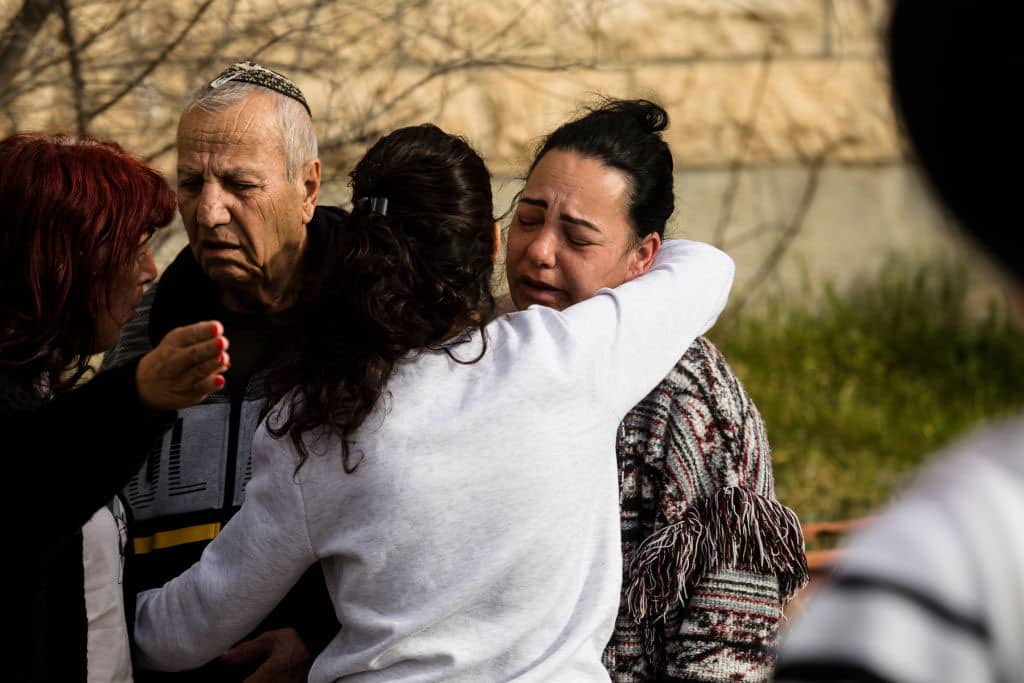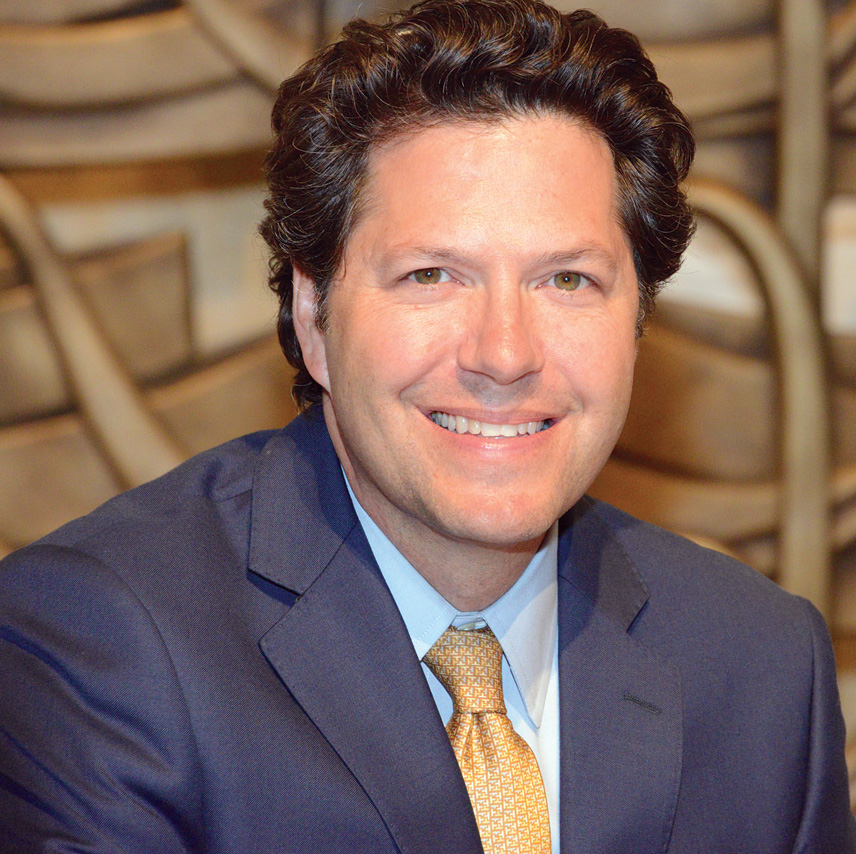 The family of Eli and Natali Mizrahi who died, react at the scene of a mass shooting which happened near a synagogue in the neighbourhood of Neve Yaakov on January 28, 2023 in Jerusalem, Israel. (Photo by Amir Levy/Getty Images)
The family of Eli and Natali Mizrahi who died, react at the scene of a mass shooting which happened near a synagogue in the neighbourhood of Neve Yaakov on January 28, 2023 in Jerusalem, Israel. (Photo by Amir Levy/Getty Images) Just two weeks ago, as Shabbat began in Jerusalem, we learned of the deadly shooting outside of a synagogue in East Jerusalem that killed seven Israelis and wounded three others. The gunman, a 21-year-old Palestinian, was killed a few hours later by police. As one of the victim’s sons said during the eulogy, we went from kiddush, the celebration of Shabbat, to kaddish, the mourner’s prayer.
We mourn this tragic loss of life and the immeasurable pain it causes all those who are affected, including ourselves, because even if we didn’t personally know the victims, they are part of our extended Jewish family — our mishpacha. We pray that those injured recover speedily and fully. We think of security personnel and first responders who experience lasting trauma from such violent episodes. If we are able to cultivate our capacity for empathy and compassion even further, we mourn and lament the desperation born of brokenness—societal, political, religious, financial, psychological or otherwise — that breeds acts of mass violence such as this.
So much pain. So much trauma.
The opening line of last week’s Torah portion demonstrates a remarkable sensitivity for the way that trauma can affect the decisions we make and our ability to hold on to hope: “Now when Pharaoh let the people go, God did not lead them by way of the land of the Philistines, although it was nearer; for God said, ‘The people may have a change of heart when they see war, and return to Egypt'” (Exodus 13:17). According to our story, God understood that people have a natural, instinctive aversion to violence and bloodshed. If we were to come into contact with the Philistines, we would likely experience conflict that might cause us to lose hope and return to Egypt rather than experience the bloody trauma of war. And so, to avoid such a terrible choice, God leads us the long way through the wilderness so we won’t come into conflict with the Philistines.
Our parashah seems to suggest that there is only so much trauma a person or a people can take. But the lived experience of Am Yisrael demonstrates that, despite the countless horrors we have endured, we are still capable of holding on to hope and we continue to remain — as best as we can — firmly rooted in our values of justice and compassion.
Make no mistake: I am grateful that our tradition acknowledges the reality of our pain and trauma and encourages us to be thoughtful about ways in which we can avoid such discomfort in the future. But I am also grateful that our tradition provides tools that enable us to be resilient when trauma-avoidance is impossible. This can give us the confidence and the strength we need to endure difficult moments knowing that somehow, someway, just as our ancestors did before, we will make it through the narrow places of our lives.
Now we mourn. We pray for the injured. We long for a day when violence is no more, when we can live in harmony, even with those with whom we are in conflict. We practice self-care, attending to our emotional, mental and spiritual needs as well as our physical security, and — this is crucial — we remain ever vigilant, strong and resilient in the face of trauma. We know that, ultimately, we have no other choice.
We should do what we can to avoid life’s painful moments. We must protect ourselves physically and emotionally even as we remain open to the possibility of peace. But when those painful moments come, as they sadly and inevitably will, we must find strength in our community, in our traditions, and in our heritage so that we can move forward with courage and resilience. Come what may, we will remain, as always, “prisoners of hope,” dreaming of the day when “nation shall not lift up sword against nation, neither shall they learn war any more” (Isaiah 2:4).
Rabbi Yoshi Zweiback is the Senior Rabbi of Stephen Wise Temple in Los Angeles, California.























 More news and opinions than at a Shabbat dinner, right in your inbox.
More news and opinions than at a Shabbat dinner, right in your inbox.